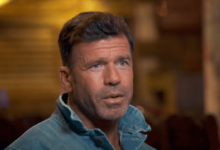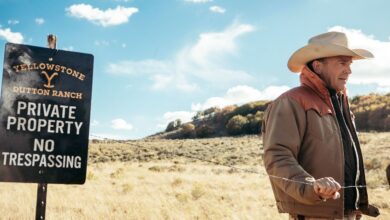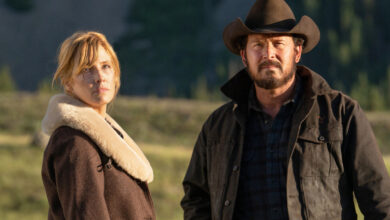‘All The Writers Who Moved Me’: Taylor Sheridan Once Revealed How He Wrote Yellowstone Without Screenwriting Classes
In a recent interview with The New York Times, Taylor Sheridan, the creative mind behind the hit show Yellowstone, opened up about his unconventional path to becoming a successful screenwriter.
Isn’t it hard to digest that Taylor Sheridan is an Oscar-nominated screenwriter with no formal classes on how to pen a script? Most would say yes, but that’s what he has been doing, writing without any prior formal classes about how to write. He is the writer behind movies like Sicario (2015) and Hell or High Water (2016). He was the one who penned Yellowstone and once revealed how he writes.
The creative mind behind the hit show Yellowstone, Taylor Sheridan, discussed candidly about his unusual journey to become a successful screenwriter in a recent interview with The New York Times. When asked if he had ever worked with a mentor before starting his screenwriting career, Sheridan said:
“Honestly? My mentor was Cormac McCarthy. My mentors were Larry McMurtry and Toni Morrison and Gabriel García Márquez and John Steinbeck. All the writers who moved me. I’ve never taken a screenwriting class in my life.”

Sheridan reflected on the beginnings of his television career, admitting that much of the work he did early on was of poor quality. Without a high-profile agent, he never had the opportunity to audition for top-tier films. Upon quitting acting to pursue his passion for storytelling, he revisited many of the scripts he had auditioned for, as well as those he had performed in. This process of rereading scripts over four days served as a crucial reminder of what not to do in his own writing.
Sheridan set out to bring genuine tales to television, driven by an unwavering dedication to authenticity. He talked about his objectives for his writing, saying that he wanted it to be a true and genuine representation of the world. He aims for a timeless quality in his dialogue, making it feel both realistic and slightly elevated. While his goal for television production is to give it the grandeur of a movie, his approach to screenwriting is to craft it like a book.
Sheridan had read thousands of scripts during his acting career, even though he had no formal training. In 2015, he wrote the screenplay for Denis Villeneuve’s film Sicario, which starred Emily Blunt. The movie, which follows an FBI agent as he attempts to take down a violent drug cartel in Mexico, was praised by critics and did well at the box office. Sheridan also wrote the follow-up, Sicario: Day of the Soldado (2018), which starred Benicio Del Toro and Josh Brolin.
In the year 2016, Sheridan’s screenplay Comancheria was adapted into the motion picture Hell or High Water. Inspired by the former ranch owned by Sheridan’s family, this critically acclaimed crime drama follows the tale of two brothers, portrayed by Chris Pine and Ben Foster, who rob banks in order to preserve their family’s ranch. Sheridan got nominations for the Academy Award and the Golden Globe for his script.
When asked about writing for specific actors, the screenwriter acknowledged that it can be difficult not to envision certain actors for particular roles. He explained to The Hollywood Reporter that although he sometimes has someone in mind initially, the characters eventually develop their own personalities and lives in his head, becoming distinct from any specific actor.
“You can certainly have someone in mind and I have, and then ultimately the character becomes its own thing and they take on their own personalities and they take on their own lives in your head,” he said.
The screenwriter expressed his desire for accuracy when discussing his writing routines, saying, “I don’t want a wasted word.” He talked about his unusual method of writing without an outline, choosing instead to take his audience on a journey through his narrative. He constantly goes back and edits his writing during the process of rewriting.
For instance, if he writes the first five pages of a screenplay, he will start the next day by rereading from page one, spending days perfecting those initial pages.
He claims that bridging the middle of the second act is the most difficult part of the writing process. This is where any errors from earlier in the script show through, he explained. At this point, logical contradictions or characters’ unpredictable emotional journeys frequently appear, forcing him to notice and fix issues that first came up thirty pages prior to that. He disclosed that he faces this difficulty with each screenplay he writes.
The screenwriter humorously mentioned his plan to someday compile the best parts of his discarded work, which he believes could resemble an Altman film – or potentially a mess.






